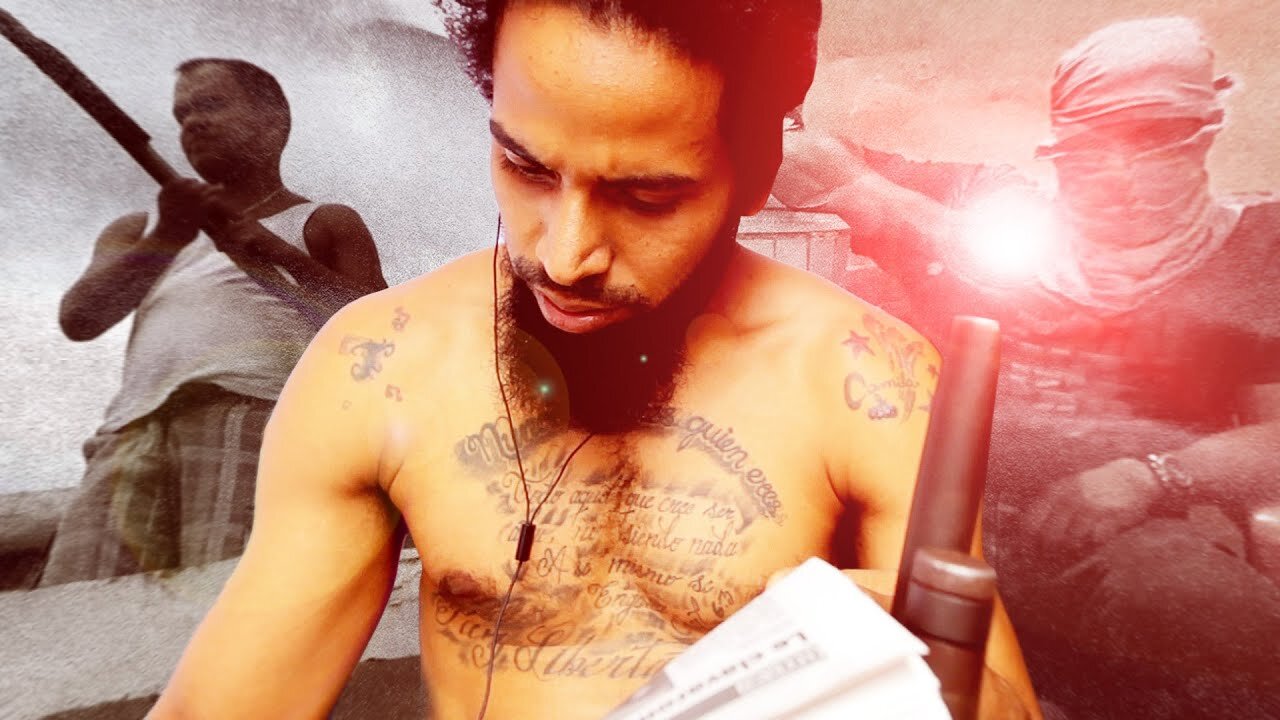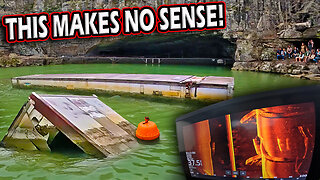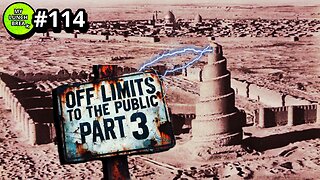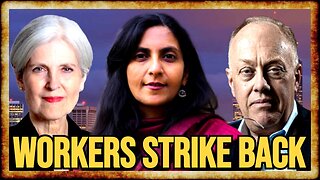Premium Only Content

The Inmates Are Running Venezuela’s Prisons. They've Created Autonomous Micro-Dictatorships.
The documentary La Causa is a raw look into these self-organized societies, complete with taxes, courts, and a strict "thug code.”
https://www.amazon.com/Causa-Andr%C3%...
https://itunes.apple.com/us/movie/la-...
------------------
Subscribe to our YouTube channel: https://www.youtube.com/ReasonTV?sub_...
Like us on Facebook: https://www.facebook.com/Reason.Magaz...
Follow us on Twitter: https://twitter.com/reason
Reason is the planet's leading source of news, politics, and culture from a libertarian perspective. Go to reason.com for a point of view you won't get from legacy media and old left-right opinion magazines.
----------------
The inmates have overtaken many prisons in Venezuela, armed with automatic weapons and grenades. They are governed by criminal gangs led by a "pran," or kingpin, who strictly enforces the "thug code" by which all prisoners must abide, or they will be shot in various body parts. It's too dangerous for guards or federal troops to enter, so they patrol the perimeter and train their rifles on any inmate who tries to leave.
Inside the walls, the prisoners have formed functional, independent societies with open-air bazaars offering everything from Coca-Cola to crack cocaine. Several days a week, they welcome their girlfriends, wives, children, and extended families for visits, birthday parties, and even music festivals.
Communal activities are funded by La Causa, or "The Cause," a tax that the prison's de facto government collects from most inmates to purchase goods that come into the facility. If they don't pay, they are sent to The Church, which acts as both a house of worship and a debtors' prison-within-the-prison.
La Causa, a new documentary from 29-year-old filmmaker Andrés Figueredo Thomson, is a raw look at life inside what was, at the time of production, Venezuela's largest prison. Filmed over the course of eight years, the documentary explores the structure of its self-organized society, where dissenters and those deemed social radicals were treated harshly. LGBT inmates, for example, were cast out and forced to live on the roof of a building.
Figueredo Thomson was a 19-year-old high school senior in 2010 when he started capturing remarkable footage inside the prison, as the socialist strongman president Hugo Chavez dismantled democratic institutions and seized control of private businesses. With Venezuela sliding further into authoritarianism, Figueredo Thomson's family was soon targeted.
His stepfather, Guillermo Zuloaga, led one of the last independent media outlets in the country after Chavez seized most of the others. He fought escalating government harassment for years as he continued to expose the vast human cost of the Chavez regime's policies. But the year after Figueredo Thomson began production on La Causa, Chavez declared Zuloaga a political enemy of the revolution, forcing his family to flee to the U.S.
The prison population has exploded in recent years as the regime of Chavez's successor, Nicolas Maduro, has cracked down on mostly poor Venezuelans for alleged petty offenses. La Causa builds to a dramatic finish as the military embarks on a campaign to retake several inmate-run prisons, setting up a showdown in 2016 at the prison where Figueredo Thomson shot most of his footage.
Produced, written, and edited by Justin Monticello. Audio production by Ian Keyser.
Music: Silent Partner
Photos: Andrés Figueredo Thomson; CARLOS HERNANDEZ/picture-alliance / dpa/Newscom; EDWIN MONTILVA/REUTERS/Newscom; JORGE SILVA/REUTERS/Newscom; EDWIN MONTILVA/REUTERS/Newscom
-
 2:33:15
2:33:15
Tundra Tactical
8 hours ago $10.90 earnedLuis Valdes Of GOA Joins The Worlds Okayest Firearms Live Stream!!!
33.9K -
 1:03:41
1:03:41
Man in America
17 hours agoAre Trump & Musk the COUNTER-ELITES? w/ Derrick Broze
84.3K44 -
 3:45:08
3:45:08
DLDAfterDark
8 hours ago $10.77 earnedDLD Live! SHTF Handguns! Which Would You Choose?
46K2 -
 1:50:38
1:50:38
Mally_Mouse
11 hours agoSaturday Shenanigans!! - Let's Play: Mario Party Jamboree
55.8K -
 1:13:00
1:13:00
Patriots With Grit
15 hours agoWill Americans Rise Up? | Jeff Calhoun
46.2K13 -
 14:55
14:55
Exploring With Nug
15 hours ago $11.56 earnedWe Found Semi Truck Containers While Searching for Missing Man!
59.4K9 -
 27:57
27:57
MYLUNCHBREAK CHANNEL PAGE
23 hours agoOff Limits to the Public - Pt 3
142K66 -
 38:07
38:07
Michael Franzese
15 hours agoLeaving Organized Crime and Uncovering Mob in Politics: Tudor Dixon and Michael Franzese
111K15 -
 2:42:54
2:42:54
Jewels Jones Live ®
2 days agoAMERICA IS BACK | A Political Rendezvous - Ep. 111
86.9K50 -
 8:47:33
8:47:33
Due Dissidence
1 day agoLIVE: Workers Strike Back Conference ft. Chris Hedges, Jill Stein, Kshama Sawant, and More!
123K92